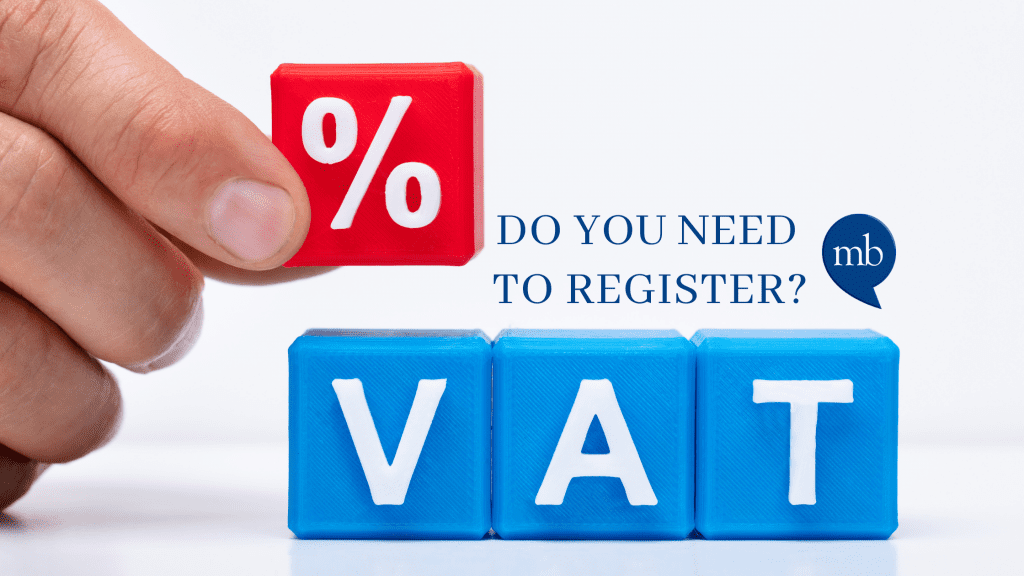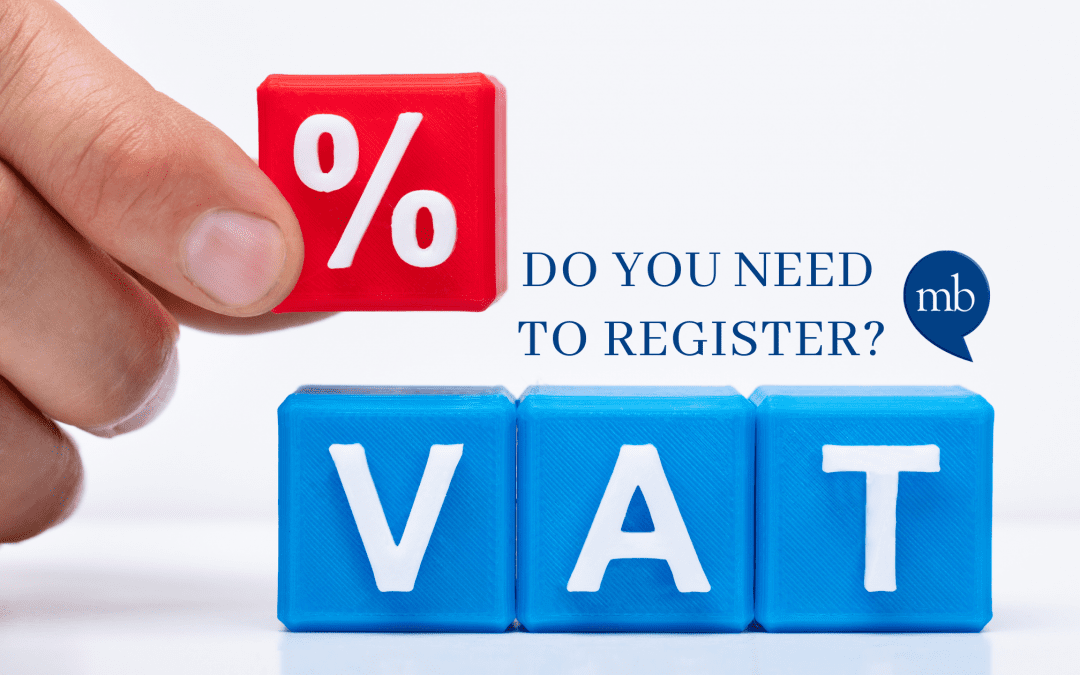
VAT is a complex topic. With its strict penalties, it’s important to know when (and how) to register for VAT. What’s more, not all businesses need to register. This blog is full of information and helpful pointers. Below we explore the question, ‘Do I need to register my business for VAT?’
What is VAT?
VAT stands for Value Added Tax and is a tax that is on almost all services and goods sold. VAT rates are percentage-based, the standard rate is 20% with some goods charged at lower rates, such as household fuel and children’s clothing. Businesses must pay VAT when their turnover exceeds a certain amount.
When do I need to register my business for VAT?
You need to register your business when the VAT taxable turnover exceeds the threshold. The current threshold (2021) is £85,000, this usually increases each year, however it has not risen from the 2020-2021 financial year to 2021-2022 financial year. The taxable turnover for VAT is the total value of all that you sell, which is not exempt from VAT. GOV.UK’s calculator can help you to work out exactly what you need to include.
You need to register with the HM Revenue and Customs through GOV.UK if your turnover exceeds the current threshold in a rolling 12-month period. This period is not fixed and can be any 12-month period, for example August to July. Alternatively, if you expect your VAT taxable turnover to go over £85,000 within the next 30 days, you’ll need to register. You need to register by the end of the 30-day period because the effective date of registration is the date you realised rather than the date you actually go over the threshold.
When do I need to make VAT returns and pay my VAT?
Most businesses need to complete a VAT return and make payment quarterly. VAT returns usually need to be submitted by a month and 7 days after the relevant period. Eg. VAT returns for the 3 months up to 31st August need to be submitted by 7th September. Most VAT returns must now be filed digitally with HMRC, however there are some exemptions meaning you can file a paper VAT return.
What happens if I’m late paying my VAT?
If you are late registering, you will need to pay the VAT you owe from the date you should have registered. You may also be given a penalty charge for this.
How can I keep records for my VAT return?
You need to keep all the information related to your VAT return including business invoices and receipts, for six years. In April 2019, the ‘Making Tax Digital’ regime came in. This meant some requirements to record keeping changed. Some of your records now must be kept in digital form.
When do I no longer need to be VAT registered?
If you are VAT registered and your business ceases from trading, you need to cancel your VAT registration within 30 days or you could be charged a penalty. You can voluntarily cancel your VAT registration if you think your VAT taxable turnover will drop below the de-registration threshold in the next year. The de-registration threshold is £83,000.
You can transfer a VAT registration, for example, if you have sold your business and the new owner is keeping the VAT registration number. It’s important to ensure that you take professional advice in a situation like this.
Can I get a VAT exception?
If you think that you will only exceed the VAT threshold temporarily, you can apply for an exemption. You will need to show evidence for why you believe your VAT taxable turnover won’t exceed the de-registration threshold of £83,000 within the next year.
Further information on VAT
All of the information you need for VAT registration can be found at GOV.UK. However, if you would like some more support with this please contact McCarthy Browne today to see what we can do for you.
If you’d like to read more information on setting up your business, head over to my handy blog here.

